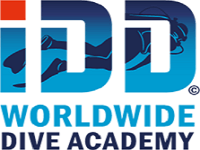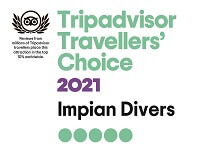When to Thailand to dive is a common question. Logical when you fly 11,000 km with.
Thailand has a tropical climate and it is about 26 -30 degrees all year round. The best travel time is from December through June. Then there is little rain and lots of sunshine, exactly what you want when you are at the beach!
During the months of July and August there is a bit more wind and normally November is the rainy month here on Koh Tao.
Koh Tao is fine to visit all year round, but sometimes there is a chance of a daily tropical shower. The advantage of this is that everything is in bloom nicely and it is a little less hot!
However, for a diving course, it doesn’t matter. Wet we will get anyway!
There are dive sites all around Koh Tao, so we always find a sheltered spot for the shallow water exercises.
Sometimes visibility is a little less, but this can also occur during the dry season.
This is because the Gulf of Thailand is relatively shallow, and because of the heat, algae grow in abundance . A little wind (often around the turn of the moon) and visibility will be a little less for a while.
Please email us about what the weather is like. We ourselves do not like nice weather talk and we will give you an honest answer. However, as in the Netherlands: nothing remains as unpredictable as the weather.
We check the wind and rain daily on this website






